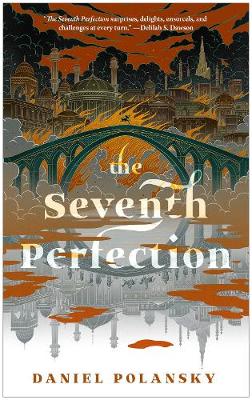The Seventh Perfection is the latest novella to come from the mind of Daniel Polansky, and it's an adventurous take on a fantastical world.
Manet is famous for her perfect memory – complements of her mastering the seven perfections. Now she's on a quest to solve a riddle and save the city, ideally before the perfection she has mastered costs her everything.
“Well, thank Ba'l Melqart that you were born into the era of His benevolence.”
I can say with complete honesty that The Seventh Perfection is like nothing else I've ever read. It's wholly unique, and was unafraid to take risks.
Admittedly not all of those risks paid off, but I still respect them nonetheless. The world itself seemed to beg for further exploration, and that alone was enough to keep me reading this story. Actually, I wouldn't have minded seeing even more of the world that Polansky built here.
The entire story is told in the second person, which I know can be off-putting for many readers. In this case, it did feel like it forced an extra layer of distance between the main character and the reader. A bit ironic, really.
Much of the novella is about Manet searching the city for answers. Thanks to the perspective, that means there are a bunch of new characters talking at her (and us, by proxy), to tell the tale. It's also important to note that we see other characters reactions to Manet's words, but not her own. It's an interesting twist, one that makes the tale feel just a touch more mysterious.
Honestly, this story really reminded me of a lot of classic JRPG games, where the NPCs do all of the talking, and the main character never seems to say anything. That added a heavy dose of nostalgia for me, but again, I can see why others might not enjoy it nearly so much. It's probably going to depend on your preference, and your mood at the moment.
Still, I cannot get over how unique this novella is. I truly do mean that, too. This book is unlike anything else I've even heard of, let alone read. I absolutely adore that, and give Polansky credit for giving it form.
On that note, this is the first piece of work I've read by Polansky. If the rest of his works are anything like this one, I think he's going to be an author worth looking into.
Reviewed by Quirky Cat on
Reading updates
- Started reading
- 14 September, 2020: Finished reading
- 14 September, 2020: Reviewed
- Started reading
- Finished reading
- 14 September, 2020: Reviewed
